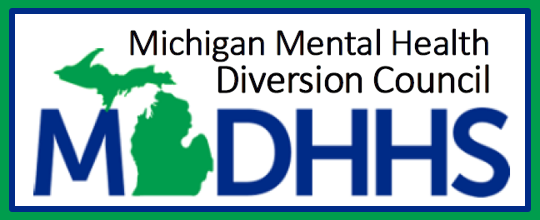Trainings and resources for families and advocates
- Terminology 101: Mental illness
Presented by Soctt Smith, Ph.D. (Consultant, Center for Behavioral Health and Justice) - Terminology 101: Treatment
Presented by Soctt Smith, Ph.D. (Consultant, Center for Behavioral Health and Justice) - Assisted outpatient treatment and anosognosia
Presented by Scott Smith, Ph.D. (Consultant, Center for Behavioral Health and Justice) - Introduction to the ethical considerations of AOT
Presented by Scott Smith, Ph.D. (Consultant, Center for Behavioral Health and Justice) - Assisted outpatient treatment: A resource for families
Terminology 101: Mental illness
Presented by:
Scott Smith, Ph.D.
Consultant, Center for Behavioral Health and Justice
In this video, Scott Smith, Ph.D. gives in-depth definitions for some key terminology used when talking about mental illness and assisted outpatient treatment. Terms include mental illness, serious mental illness, developmental disability, basic physical needs, psychosis, hallucinations, command hallucinations, delusions, manic episode, hypomania, major depressive episode, impulsivity, crisis, suicidal ideation, suicide attempt, schizophrenia, bipolar disorder, schizoaffective disorder, substance use disorder, co-occurring disorder. Use the youtube chapters to navigate this content.
Terminology 101: Treatment
Presented by:
Scott Smith, Ph.D.
Consultant, Center for Behavioral Health and Justice
In this video, Scott Smith, Ph.D. gives in-depth definitions of some key terminology used when talking about assisted outpatient treatment treatment. Terms include the Diagnostic and Statistical Manual of Mental Disorders (DSM), treatment, evidence-based treatment, outpatient treatment, earlier intervention, higher level of care, inpatient treatment, crisis residential unit, partial psychiatric hospitalization program, psychiatric urgent care, voluntary treatment, involuntary treatment). Use the youtube chapters to navigate this content.
Assisted outpatient treatment and anosognosia
Presented by:
Scott Smith, Ph.D.
Consultant, Center for Behavioral Health and Justice
This training, hosted by Scott Smith, Ph.D., is designed to help families and advocates a symptom of serious mental illness called anosognosia, how it contributes to someone's inability to consistently engage in treatment, and how assisted outpatient treatment is designed to help. Learn about how anosognosia, or the impairment to recognize one's illness, might be affecting certain areas of the brain. Use the chapters below to navigate the content in this video.
Introduction to the ethical considerations of AOT
Presented by:
Scott Smith, Ph.D.
Consultant, Center for Behavioral Health and Justice
Join Scott Smith, PhD, in an introduction to the ethical considerations of assisted outpatient treatment (AOT). This video introduces AOT as a legal method for mandating outpatient care for individuals with severe mental illness at risk of harm. Ethical considerations such as autonomy and involuntary treatment are examined alongside potential risks like coercion, while benefits include reducing hospitalizations and improving outcomes. AOT is contrasted with guardianship, emphasizing its distinct legal framework. Safeguarding measures like regular judicial review aim to protect the rights of those under AOT orders are also discussed.
Assisted outpatient treatment: A resource for families
This resource is a general overview of AOT for families and loved ones of those with serious mental illness (SMI). AOT is a civil court order for mental health treatment; it is a tool, not a specific type of mental health treatment. Adjustments can be made as needed, and each AOT case is different. This flyer walks families and advocates through eight steps from getting a petition to ending an order, and who in the AOT system of care plays a role in each step:
- Deciding to petition
- When to petition
- Filling out a petition
- Getting supporting documents for a petition
- The court process
- After the order is issued
- Supporting treatment and goals
- When the order is ending

